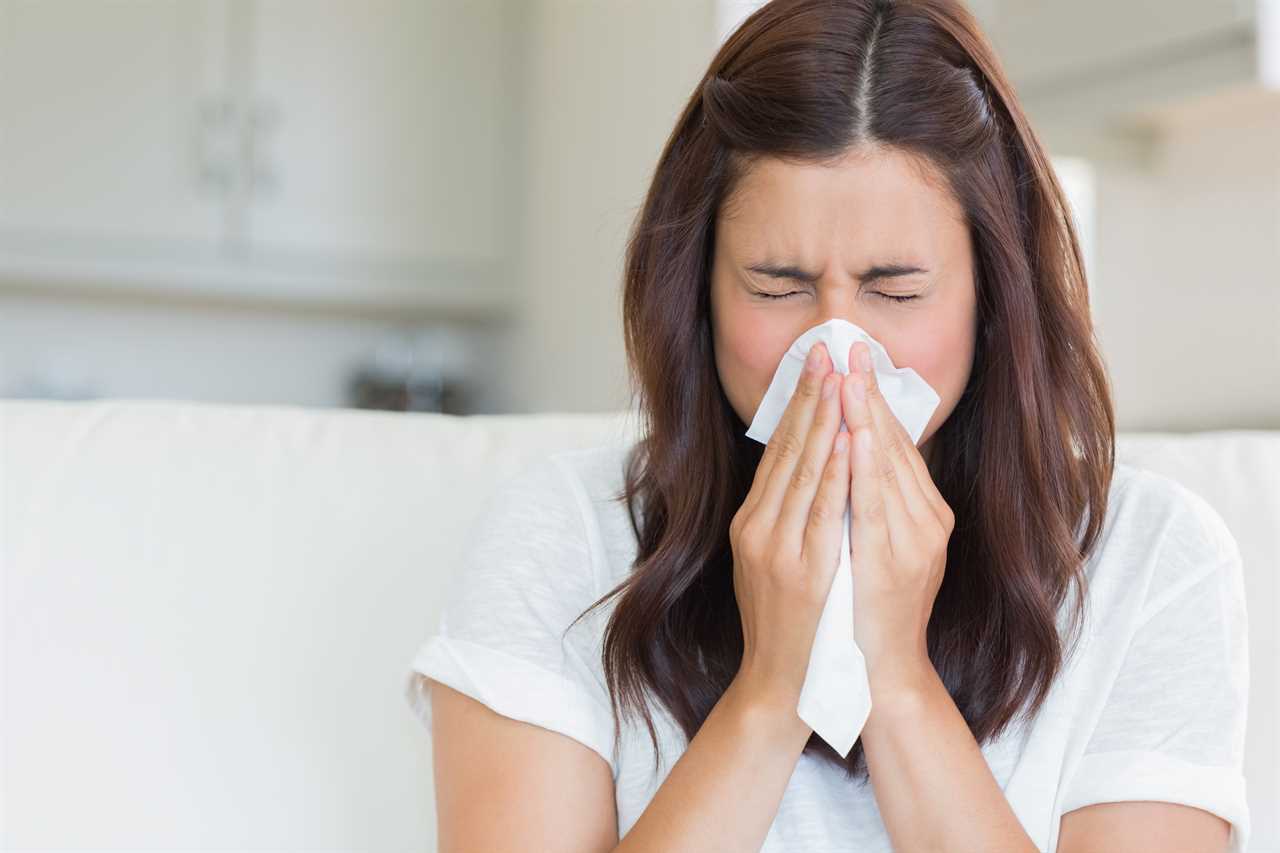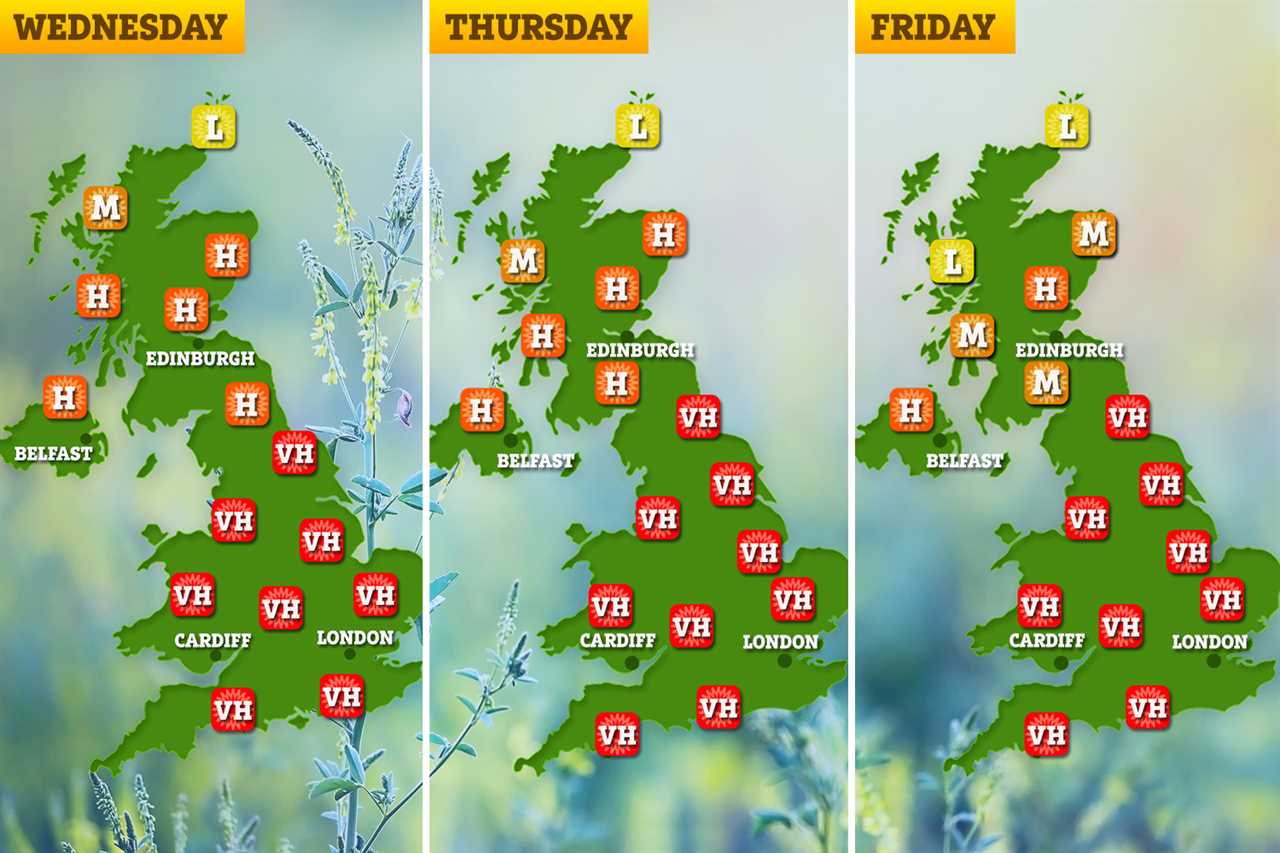A RUNNY nose when the weather is hot may seem strange.
But for millions it’s what they have to put up with frequently in the summer as a result of hay fever.

Hay fever is an allergic reaction to pollen – a fine powder expelled by plants – when it comes into contact with the mouth, nose, eyes and throat.
It’s worse on some days over others, with hot temperatures proven to circulate pollen and mould spores at a higher level.
It usually rears when someone is a child or teenager.
However, it can develop in adulthood, striking people who were once able to go outside without fearing the consequences.
Read more on hay fever
With “very high” pollen counts across the country this week, there is a high chance your sudden cold-like symptoms are in fact an allergy.
NHS Inform says: “Hay fever is one of the most common allergic conditions. It’s estimated that there are more than 10 million people with hay fever in England.
“You can get hay fever at any age, although it usually begins in childhood or during the teenage years.
“It’s more common in boys than girls. In adults, men and women are equally affected.
“You’re more likely to develop hay fever if you have a family history of allergies, particularly asthma or eczema.”
Many people find their symptoms improve as they get older, however.
Around half of people report their symptoms improving after several years, and around 10 to 20 per cent say they disappear completely.
Hay fever is incurable, but people with the condition can relieve their symptoms with various remedies.
For example, those with itchy eyes may rely on eye drops, while those with a runny nose may benefit from a nasal spray.
Almost all those with the allergy take antihistamines.
Phil Day, Superintendent Pharmacist from Pharmacy2U, says: “If your hay fever symptoms begin interfering with your everyday quality of life you should consider making an appointment to discuss possible next treatment avenues with your doctor.
“This could involve being prescribed corticosteroid nasal sprays or drops as an alternative instead of antihistamines.”
Symptoms
The symptoms of hay fever can mask themselves as a cold, flu or Covid.
Phil said: “The main symptoms of Covid-19 are a high temperature, a loss or change to your sense of taste or smell, and a new continuous cough.
“If you experience these, it may be worth taking a Covid-19 test.
“With hay fever, however, symptoms tend to be milder, there is no raised temperature, and there is less chance of sensory changes or feeling generally unwell.
“Hay fever usually causes sneezing and itchy eyes, which are not Covid-19 symptoms.
“Symptoms of a common cold can also overlap with those of Covid-19 or hay fever.
“However you don’t tend to get itchy/watery eyes with a cold, or shortness of breath which is associated with Covid-19.
“Many people find it helpful to take note of what hay fever symptoms they suffer from, as it helps them work out whether a set of symptoms are more likely to be Covid-19, a cold or hay fever.
“If you’re in doubt, you can contact a pharmacist or health care worker to ask about your symptoms.”
According to the NHS, the symptoms of hay fever are mainly:
- sneezing and coughing
- a runny or blocked nose
- itchy, red or watery eyes
- itchy throat, mouth, nose and ears
- loss of smell
- pain around your temples and forehead
- headache
- earache
- feeling tired
These symptoms, which can affect day-to-day life for those with a severe allergy, will last for weeks or months.
Read More on Trending In The News
Hay fever season runs from late March to the end of summer.
Most people have an allergy to grass pollen, which picks up between May and July.










